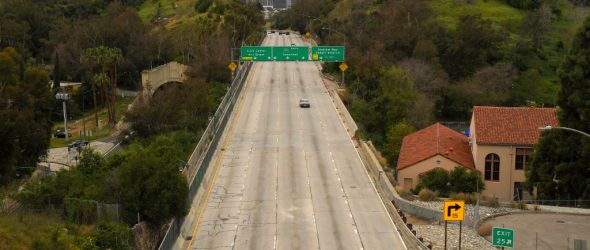The state Department of Public Health issued new directives to all Californians Saturday morning about what activities are — and aren’t — allowed during the unprecedented statewide stay-at-home order aimed help slow the spread of the deadly coronavirus.
The statewide order, signed by Gov. Gavin Newsom Thursday, is looser than the stay-at-home directive issued by seven Bay Area counties earlier in the week. That order sets further limitations on the types of businesses that can stay open, and cities in the area have continue to put in place additional restrictions, like San Jose’s decision Friday to close all city parks.
But while local governments are allowed to put tighter restrictions in place, the state rules supersede any laxer orders issued by county or municipal governments.
What can stay open?
For starters, don’t worry: Cannabis dispensaries are allowed to stay open under Newsom’s order, as long as they are licensed to sell medical marijuana. Also allowed to stay open are:
- Gas stations
- Pharmacies
- Food: Grocery stores, farmers markets, food banks, convenience stores, take-out and restaurants offering delivery
- Banks
- Laundromats/laundry services
- Essential state and local government functions will also remain open, including law enforcement and offices that provide government programs and services.
What’s closed?
- Dine-in restaurants
- Bars and nightclubs
- Entertainment venues
- Gyms and fitness studios
- Public events and gatherings
- Convention centers
- Hair and nail salons
What businesses are exempt?
Businesses and organizations that provide critical infrastructure for the state are exempted, including health care and public health, public safety, food and agriculture and media. Businesses that fall under these categories do not need to obtain any specific authorization from the state to operate. You can see the full list of exempt sectors here.
School lunch programs will still operate
While schools across the state are closed, grab-and-go meals for students eligible for free or reduced-cost lunch will still be provided by local districts.
What about helping others?
People can leave home to care for friends and loved ones in need. But residents are urged to protect both themselves and the people they are providing care for by following social distancing guidelines, including maintaining at least 6 feet of distance when possible, washing hands before and after any interaction, using hand sanitizer, and coughing or sneezing into your elbow or a tissue — and then washing your hands. People who have early signs of a cold should stay away from older people.
Hospital and care home visits
Visits to hospitals and nursing homes are banned except when a patient is at the end of life. There are limited exceptions, such as going to the hospital with a minor or someone who is developmentally disabled and needs assistance.
Non-essential medical care such as eye exams, teeth cleaning, and elective procedures must be canceled or rescheduled. If possible, health care visits should be done remotely.
Recreation and exercise
Gyms are closed, but people are still allowed to go outside for a walk, run or hike. State parks have closed all indoor facilities and campgrounds, but public access to trails and open spaces are allowed. Under the state rules, children can also be taken to play parks as long as social distancing is practiced.
Pets
Dogs can be taken for walks, but social-distancing rules must be followed. And sick pets can still be taken to veterinary offices.


